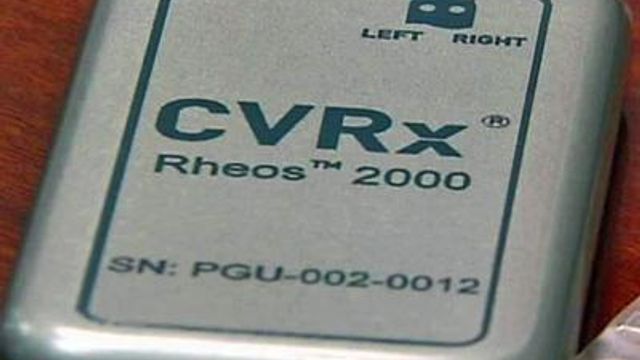Rex Tests Pioneering Device to Lower Blood Pressure
Rex Health Care doctors hope a device they're testing can help lower blood pressure – and prevent heart attacks and strokes – when diets, exercise and medications won't do the job.
Posted — UpdatedA healthier diet, more exercise and medication are the usual prescriptions that help most keep their blood pressure down. But what to do when those remedies fail?
Spencer Whitley, 48, of Saratoga, said he faced that question, when 10 years of nurses tracking his blood pressure always came back with the same results.
"(I was) just going back and forth to the doctor and noticing my blood pressure going up," Whitley said. "Medications (were) really not taking care of the problem."
Even lifestyle changes failed Whitley. "I've lost some weight, and my blood pressure went up," he said.
Whitley found that he qualified for a clinical trial at Rex Health Care. He underwent surgery for vascular surgeon Dr. Steven Kagan to implant a Rheos Baroflex device in his chest.
"Just like the thermostat in your house, your body has a thermostat for blood pressure," Kagan said. "That thermostat for your blood pressure is located in the carotid artery."
Electrodes wrap around both carotid arteries, and wires lead down to the device.
"We send an electrical signal to the carotid artery and trick the body into thinking that it needs to lower blood pressure," Kagan said. The brain then tells the blood vessels to relax, he explained.
When doctors tested Whitley's Rheos Baroflex device in the operating room, his blood pressure dropped down to 133 over 73. Blood pressure of 120 over 80 is considered normal.
A simple computer test ensures that the device keeps working properly.
The surgery scars will soon disappear from Whitley's body, though he will keep the small lump on his chest for the rest of his life.
"It's a small price to pay for what could potentially be a huge benefit," Kagan said.
• Credits
Copyright 2024 by Capitol Broadcasting Company. All rights reserved. This material may not be published, broadcast, rewritten or redistributed.





